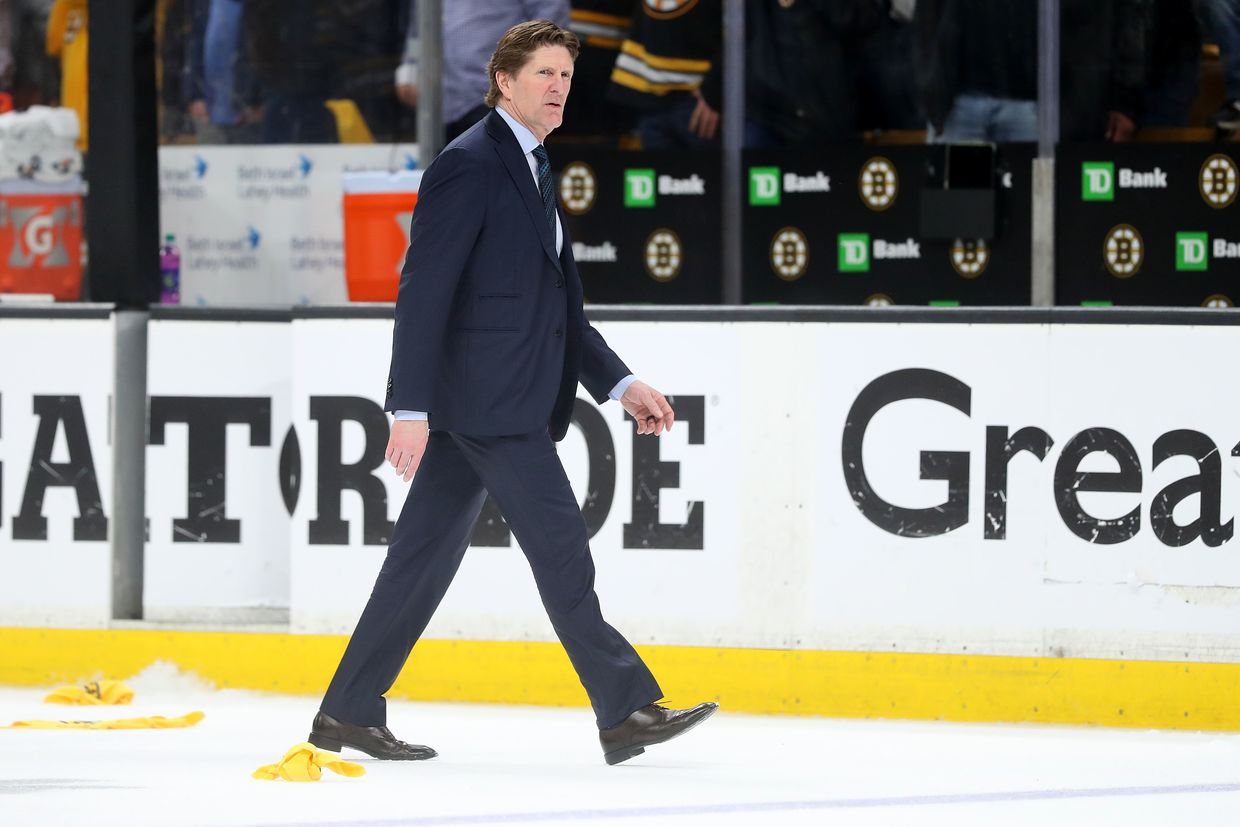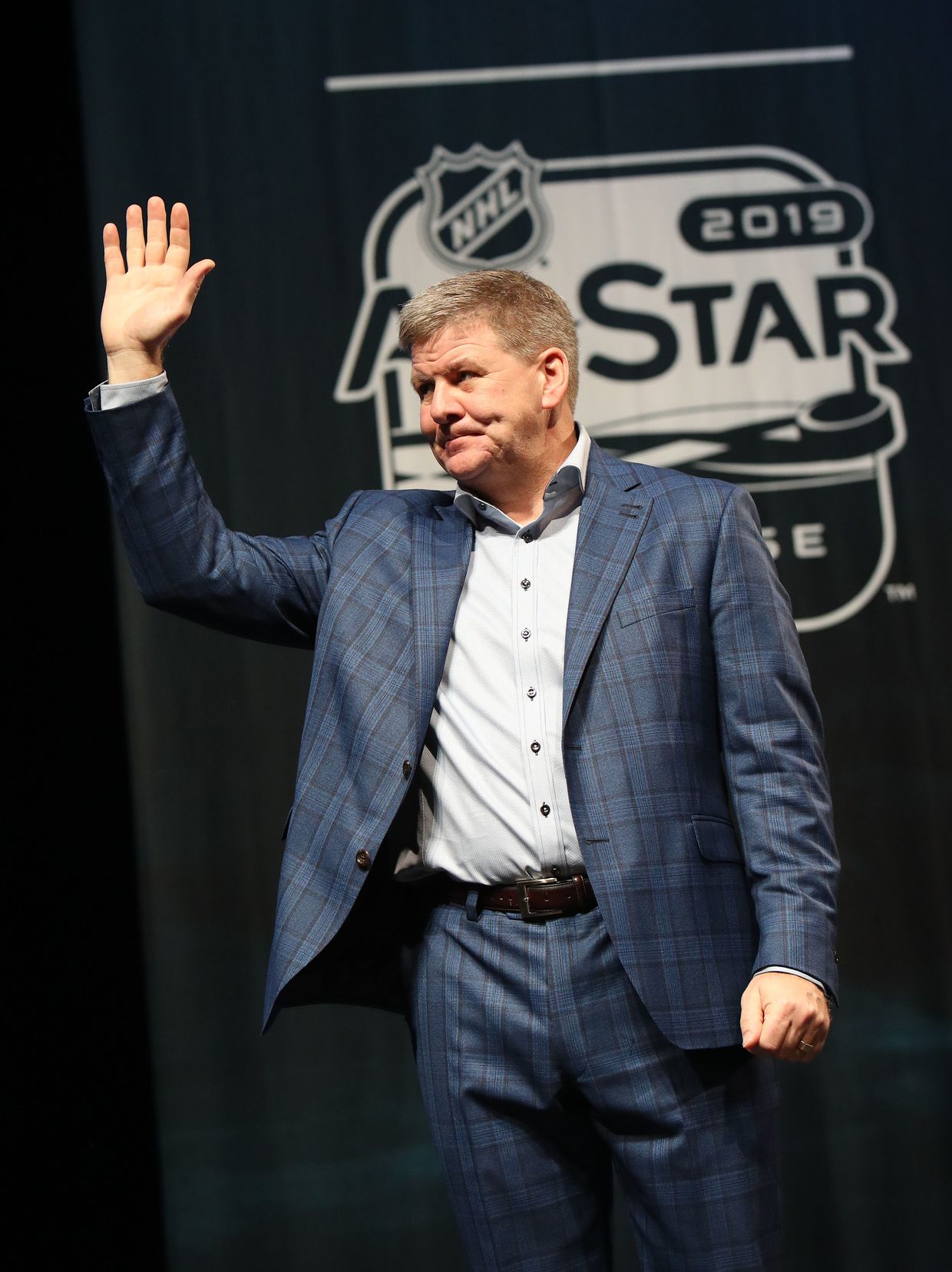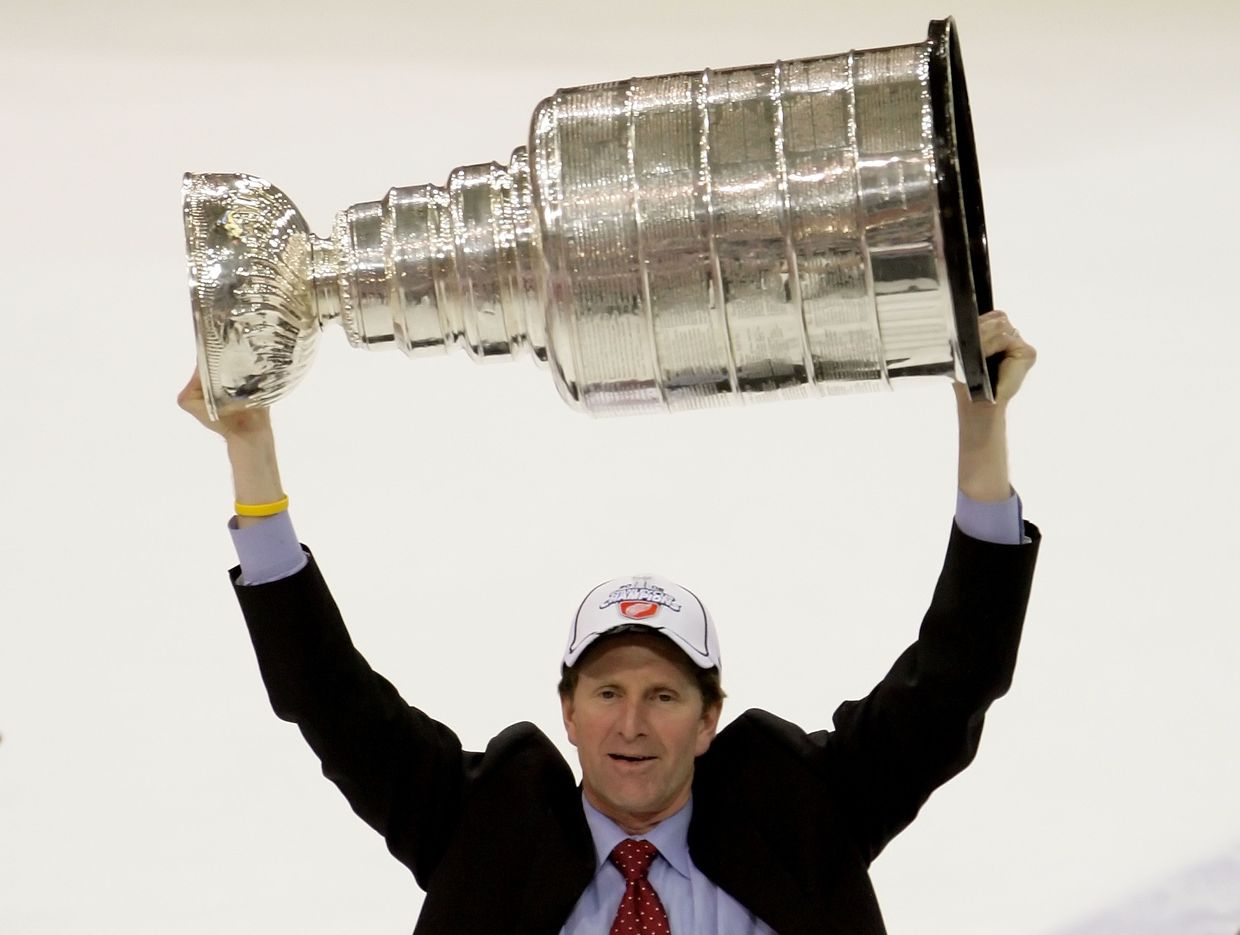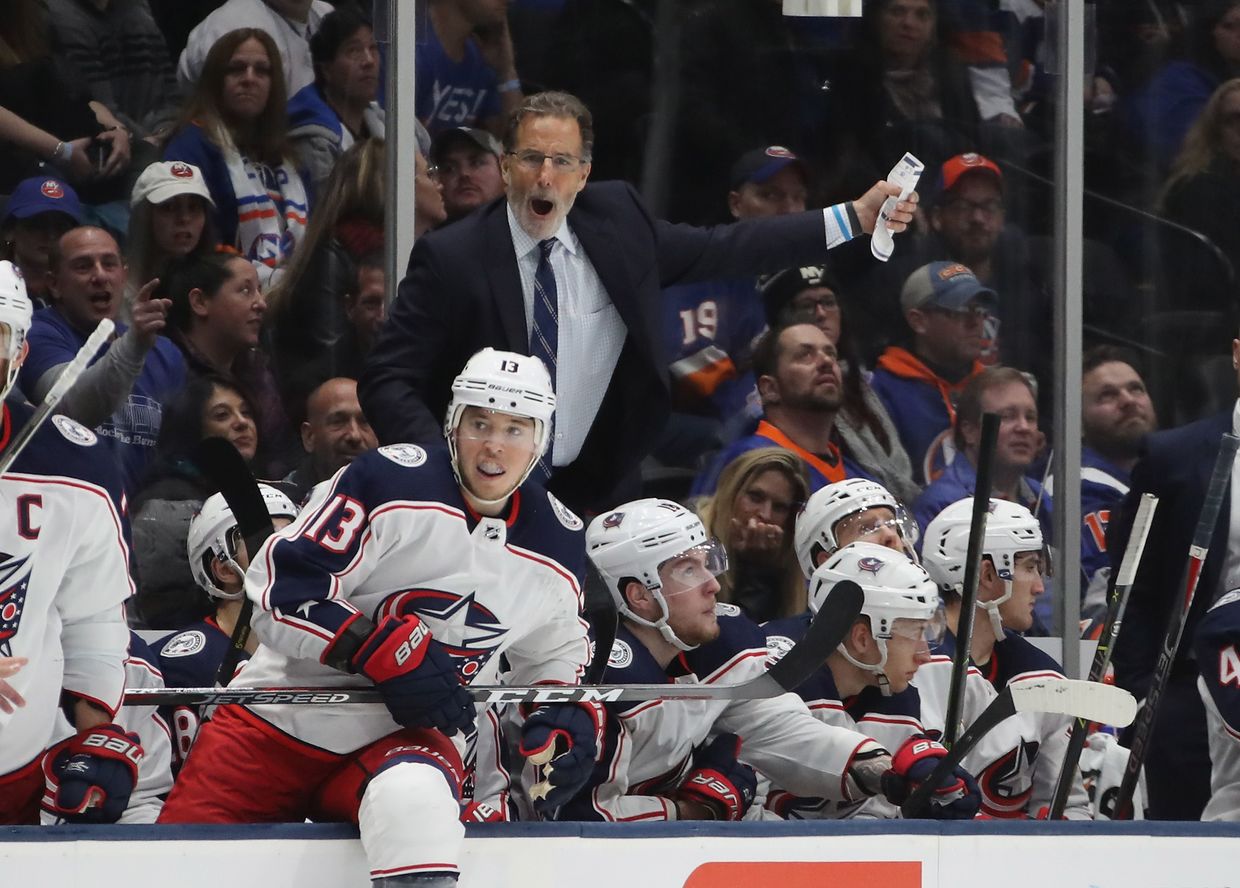Hockey is having its #MeToo moment – but should ‘bullying’ old-school NHL coaches be judged by today’s softer standards?

Racism towards your charges is never acceptable, but is the NHL really an unreformed old boy’s club, and should all suddenly-surfacing accusations be taken at face value?
Babcock – from legend to outcast in a week
The firing of Mike Babcock by the Toronto Maple Leafs in late November turned out to be far from the run-of-the-mill coaching dismissal in the National Hockey League. Normally, when a long-time coach gets cashiered, several of his peers and some of his former players speak about his talent and ability, and that it won’t be long before he gets another job.

That’s just what might have been expected with Babcock, because he is a former Stanley Cup-winning coach who also has two Olympic gold medals to his credit. But it was not to be, as silence greeted his firing, and rumblings of how tough it was to play for him came from several quarters.
Loudest among them was former NHL player Mike Commodore, a longtime Babcock critic, who tweeted with great delight over his nemesis’ dismissal.
Does hockey have a racism problem?
But the scandal really escalated when Akim Aliu, a journeyman player at the end of his career, decided to chime in about one-time Babcock assistant Bill Peters, who started this season as the coach of the Calgary Flames.
Noting that the “apple doesn’t fall far from the tree,” Aliu, who played for the Rockford (Ill.) Lightning of the American Hockey League 10 years ago when Peters was coaching the team, accused him of several racist incidents. Most notably, Peters allegedly came into the locker room at one point and yelled at him to turn off his “n*gger music” because it had no place with his team.

Other events concerning Peters also came out that included him punching and kicking other players. When the evidence was corroborated by the Flames and the NHL, Peters was shown the door.
Witnesses like Carolina Hurricanes head coach Rod Brind’Amour confirmed the story about Peters’ violence with his own players, though that raised more questions about why it wasn’t publicly reported at the time, and how many other such instances were tolerated behind closed doors.
Building character or workplace abuse?
There is no argument to be made for defending Peters, if the allegations are as reported, but the incident has opened the way for an avalanche of other accusations of varying severity, not all of them as clear cut. And the number of NHL coaches feeling their seat heating up must be in the double figures.
The most nebulous, significant, and hard to refute are claims that hockey has a bullying workplace culture.
The latest firing involved Dallas Stars head coach Jim Montgomery, who was shown the door by his employer Tuesday. General manager Jim Nill said the dismissal was the result of unprofessional conduct, but he did not reveal the specifics behind the decision.
However, Nill said Montgomery was not fired as a result of a coaching abuse incident or team performance. The Stars were 16-4-2 in their most recent 22 games before Montgomery was dismissed.
Also on rt.com NHL's Dallas Stars fire head coach Jim Montgomery under mysterious circumstancesWhere does that put Babcock, Peters and other old-school coaches who have never treated their players with kid gloves and have demanded excellence at every turn? What about coaches who raise their voices and question their players’ character when they fall short? What about coaches who are tough on their players in practice and demand that they strive for perfection?
It seems that these types of coaches are under the gun for things that may or may not have happened in the past. It seems like the NHL and those who consider themselves guardians of the sport think they have the right to dig into the past to try to find questionable coaching techniques that were used in the past.
This is not justice
It’s completely unfair for NHL, minor-league, junior and college coaches to be subject to this kind of investigation from 'do-gooders' who want to change the game. Even if standards are changing right now, it’s unfair to go back into the past and try to hunt for 'ah-ha' or 'gotcha' moments.
Every coach in the game has been put on notice that something from his past could be brought up at any moment, and that isn’t right. If a player was the victim of serious physical abuse like a punch or a kick, that’s fair game. But a player who might have been called a name or was yelled at by a coach has no reason to turn ancient history into the latest cause célèbre.
Some players may want justice, money, or a little more time in the spotlight. If it is something that was a real problem 5, 10 or even 15 years ago, seek out that coach and find a way to confront him. It doesn’t have to be a public airing of grievances that leads to embarrassment or a Twitter-storm. The most satisfying thing is to confront your tormentor directly.
Babcock may have been one of the game’s toughest leaders who did not accept anything but the level best from his players. That demanding style helped him lead an elite team that won the 2008 Stanley Cup with the Detroit Red Wings.

Calling him out now is sour grapes and somewhat cowardly. Babcock has been defended by Montreal Canadiens head coach Claude Julien and Boston Bruins center Patrice Bergeron. Julien was an assistant coach on Babcock’s Olympic staff and Bergeron was one of his key players on the team that won Olympic gold. Both are men of high character who are known for their veracity.
Who's next?
One must wonder just want John Tortorella is thinking these days. Tortorella has long been a successful NHL head coach and has a Stanley Cup to his credit for the work he did with the Tampa Bay Lightning in 2004. However, Tortorella is a demanding and confrontational leader who does not spare the feelings of his players.

Personally, he has never been one of my favorites and his confrontations with reporters have regularly shown him to be an angry, obnoxious, and someone who comes close to crossing the line. However, his less-than-cordial attitude towards the press and his demanding ways with his players should not be cause for some investigation and finding that feeds into the public’s nature for blood lust.
Coaching is not an easy business, and while there may be more camaraderie now between players and coaches than there was 10, 20, or 30 years ago, the buddy system doesn’t work. Players must know who the boss is, and they have to know that it’s not always going to be peaches and cream.
There’s a toughness that is demanded by winning coaches, and that trait does not come just by making life easy for players. If a coach has to call out, embarrass or put his charges through harsh and physical practices, that comes with the territory.
Those who want to make these men accountable for something that may or may not have happened years ago are weakening their sport dramatically. If they are allowed to get their way, they just may ruin it.
By Steve Silverman
Steve Silverman is an award-winning US sportswriter who has covered the NHL on a long-term basis. He is the author of 'Who’s Better, Who’s Best in Hockey'.














